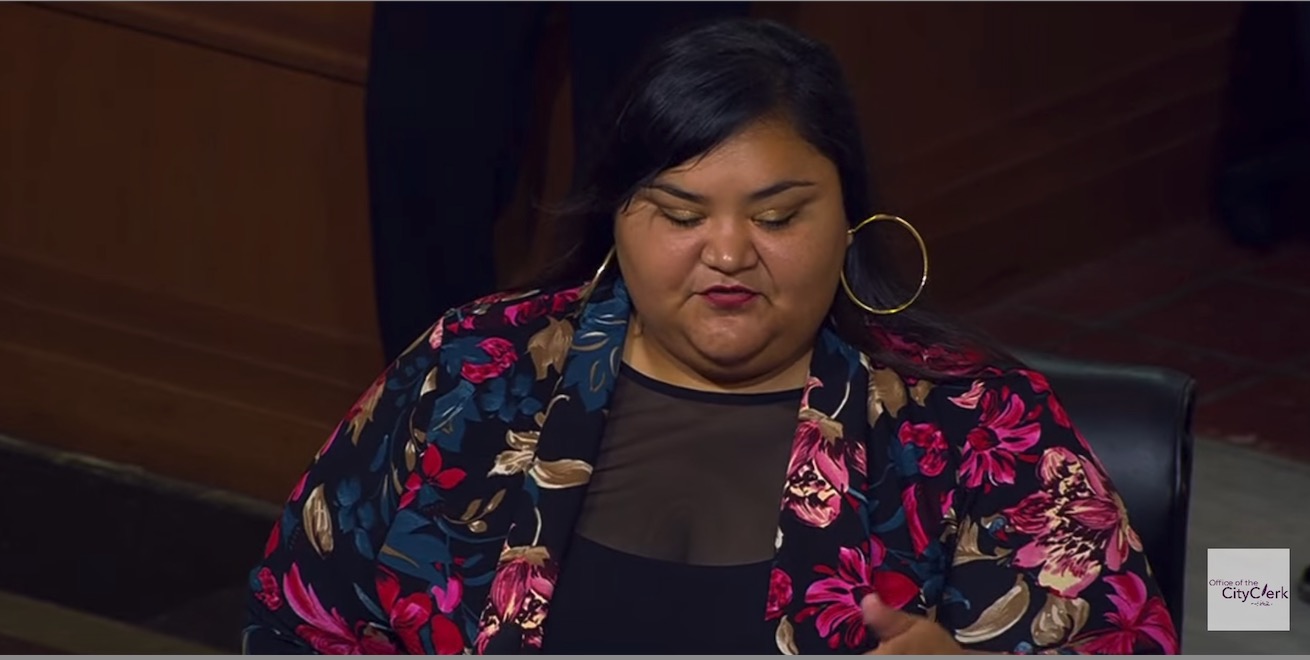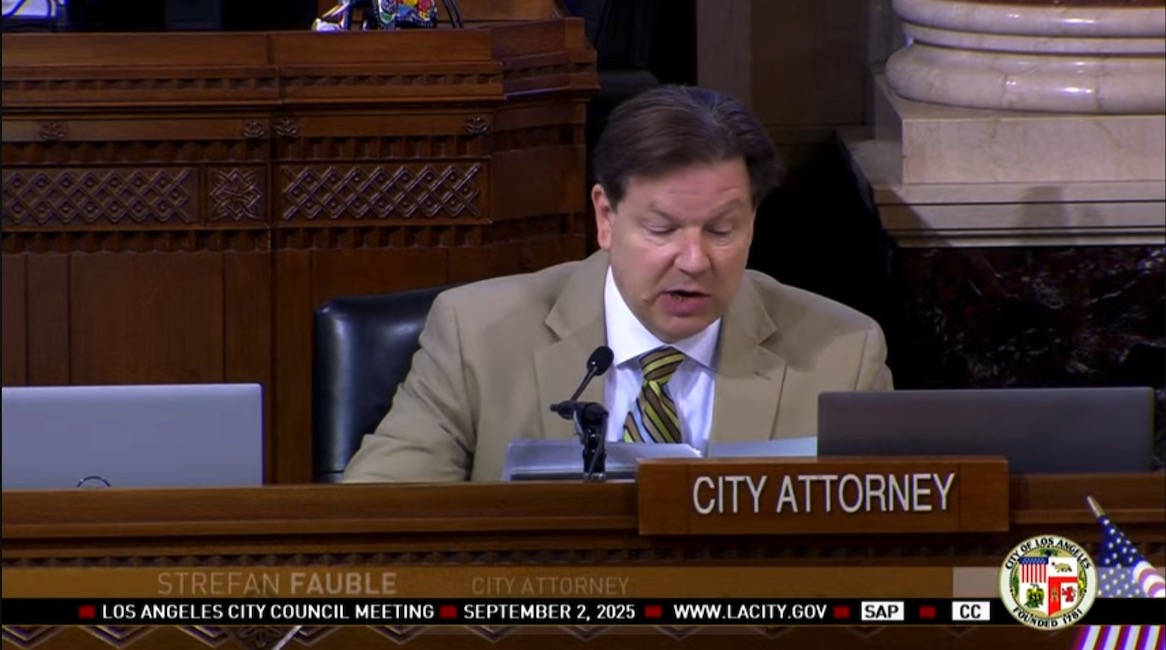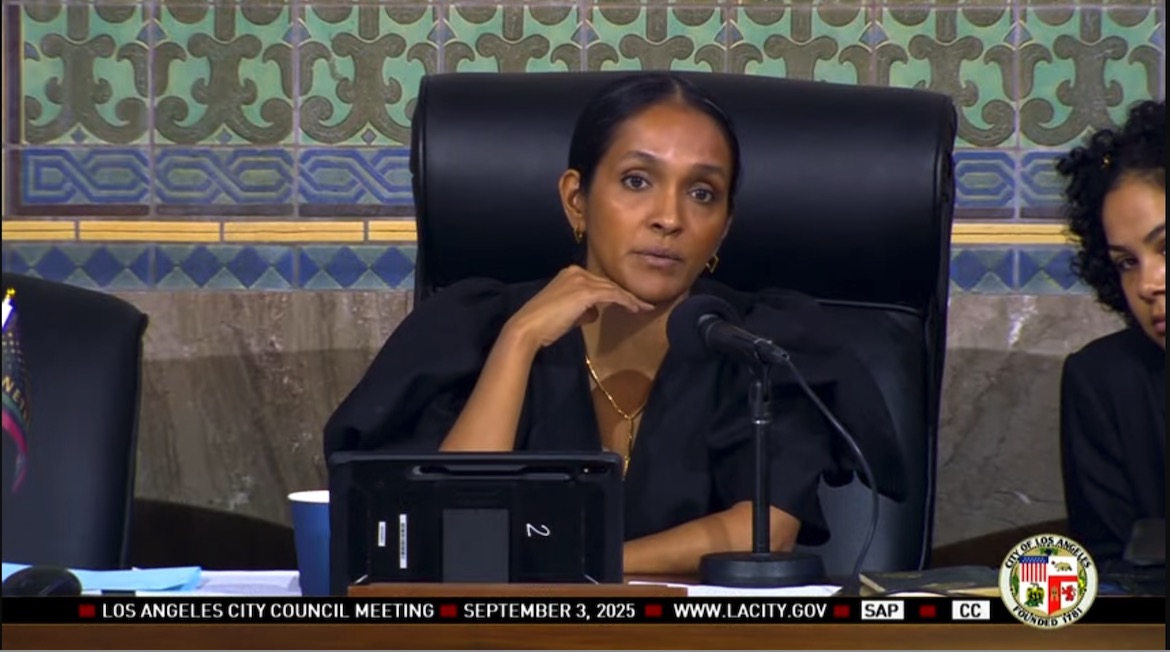Comments
ERIC PREVEN’S NOTEBOOK - Imagine this: the U.S. House of Representatives — the body that declared wars, impeached presidents, and wrestled with civil rights — has gone into closed session four times in the last 186 years. Once in 1979, once in 1980, once in 1983, and once in 2008. That’s about one closed session every half-century.
Now shift to Los Angeles, where the City Council and the County Board of Supervisors march into closed session almost every week. Since January, the Council has stacked dozens of items behind closed doors. The Supervisors do the same, sometimes for several hours before the public speaks.
If Congress could debate World War II in the open, why can’t Los Angeles debate a lawsuit over sidewalks or a $10 million settlement for police misconduct? The answer isn’t national security. It’s the Brown Act — California’s open-meeting law — being twisted by lawyers into a hall pass for secrecy.
The LA CAN Lawsuit
Enter the lawsuit filed by the Los Angeles Community Action Network (LA CAN). As the Times reported, LA CAN alleges that on January 31, 2024, the City Council approved a plan to remove 9,800 homeless encampments behind closed doors — then returned to open session to announce “nothing to report.” Two months later, the same play was run with a County service agreement.
That’s the lawsuit in black and white: Council goes in, decides, comes out, shrugs. “Nothing to see here.”
But the everyday practice may be even worse.

Eunisses Hernandez (CD1) knows what is happening.
The Skidoo Trick Play
In the ordinary course of business, Council runs what I call the Harris-Dawson–Yaroslavsky Skidoo — a slick budget maneuver that fast-tracks million-dollar decisions while sidelining public input.
Here’s the sequence:
- Bundle dozens of settlements into a single agenda block.
- Skip the back room entirely.
- The floor lieutenant cues it up: “Tell ’em what they’ve won, Johnny!”
- The Clerk reads the payout: “Settlement approved for $10 million.”
- Members of the public try to speak.
- Response: Denied. Next speaker.
- Push back, and you’re shunted to general comment or escorted out.
This isn’t transparency. It’s a quarterback sneak — a trick play designed to get the money past the line before the public can touch it.
The April 11 Exchange
I challenged this practice on April 11, 2024.
Deputy City Attorney Jonathan Groat: “I asked you to move on to the agenda items, I am going to move you to general public comment.”
Smart Speaker: “Fine. I’ll move to general public comment. But when you announce settlement terms, that’s new information. And the law is simple: the public must be allowed to comment before or during consideration. Not after. Not never.”
That’s not rhetoric. That’s Gov’t Code §54954.3(a).
The Lawyers Who Know Better

Fauble is the cordial face of the corrupted City Attorneys office.
Here’s the problem: Groat knows this. So does Strefan Fauble, the City’s top Brown Act advisor. So does City Attorney Hydee Feldstein Soto, who last week asked for another $5 million for outside counsel at Gibson, Dunn & Crutcher to manage these cases.
They’re not confused. They’re not misinformed. They are misreading the law on purpose — because it keeps the public out and makes their jobs easier. “Pending litigation” becomes the magic password to secrecy. And outside firms like Gibson Dunn bill millions while the Council votes without hearing a word from the people footing the bill.
The Law on the Books
California courts have been clear:
- Register v. County of Orange (1984): unlawful closed sessions lose secrecy protections.
- Preven v. City of Los Angeles (2019): the City can’t use procedural tricks at special meetings to avoid public comment.
The law is not ambiguous. It is being deliberately distorted.
The Cost of Secrecy — Now
And secrecy is expensive.
The City of Los Angeles paid $289 million in legal settlements and jury verdicts in 2024 — more than triple what it paid two years earlier. This year it is on pace to exceed $320 million, driving a near $1 billion budget shortfall that has already triggered layoffs and spending cuts.
The County of Los Angeles faces a $4 billion settlement to resolve 6,800 childhood sexual abuse claims — and insiders warn the price tag could climb by another $2 billion before it’s over. That’s a nuclear hit to a $49 billion annual budget.
And how are these liabilities handled? In closed sessions. With settlements read into the record after the fact, no debate, no public comment, no accountability. The public pays the bill, but the public never gets to speak.
City vs. County vs. Congress
At the County, settlement items are at least open for public comment. At the City, they’re locked down. Same Brown Act. Two totally different interpretations. And compared to Congress? It’s not even close.
Congress could debate both World Wars in the open. Los Angeles can’t even debate a sidewalk lawsuit without running into the bunker.
Wake Up
The LA CAN lawsuit should be a wake-up call. Because this isn’t just about encampments. It’s about how Los Angeles has normalized secrecy. It’s about lawyers who misread the law on purpose, elected officials who let them, and the billions of dollars in liabilities that follow.
As Ai Weiwei reminds us: “I call on people to be ‘obsessed citizens,’ forever questioning and asking for accountability. That’s the only chance we have today of a healthy and happy life.”
LA CAN is in court. Taxpayers are at the mic. Notebook readers are paying attention.
So next time you hear “nothing to report” or “Settlement approved for $10 million” — remember: that’s not routine business. That’s a trick play. And the Brown Act throws a flag on it.

Haytime.
Smelling Salts and Flip-Flops
After 21 days in flip-flops with the lights off — yes, nearly a month of dark offices and recess — the Board returned on September 2, 2025. You might expect urgency, focus, maybe even brevity. Instead, you needed smelling salts to get through this thing.
Staff delivered a grim, sprawling presentation on federal budget cuts and the unraveling of Housing First. The Supervisors then indulged themselves with endless “questions” that doubled as turf-protecting speeches.
The transcript tells the tale:
Barger: 59 pages (mostly procedural, but still omnipresent).
Mitchell: 29 pages (the heavyweight champ of indulgent questions).
Hahn: 22 pages.
Solis: 20 pages.
Horvath: 19 pages.
That’s over 149 pages of Supervisors bellowing on, versus a sliver of public comment (nine speakers total, three verbatim). Public voices got a minute; the Board got the afternoon.
No wonder it felt like an endurance event — not so much governing as verbal calisthenics after vacation.
Why City and County Staff Can’t Sleep

Nithya Raman (CD4) conducted one of the shortes meetings ever, because ..."tired"
Forget Ambien. Forget white noise apps. In Los Angeles, deep sleep is for suckers—er, taxpayers—dozing through marathon hearings.
The staffers behind the curtain? They’re bolt upright at 3:11 a.m., sweat-soaked, clutching a throw pillow like it’s a CEQA report, whispering, “motion tabled… cut him off… ethics violation…”
We ran a non-consensual, zero-budget sleep study across City Hall and the County Hall of Administration.
Data sources: cortisol spikes, 2 a.m. Slack pings, and unexplained reassignments to “honorary scroll duty.”
Here are the top three reasons LA’s most caffeinated bureaucrats are losing sleep and their minds.
2:14 a.m. – Sandwichgate (Budget Implosion Edition)
Mixed up Blumenfield’s pastrami-on-rye with Yaroslavsky’s Tuna melt disaster. Now I’m flagged as “fiscally non-compliant” and scheduled for a performance review in Room 404. Diagnosis: Acute snack trauma with a side of agenda-packet panic.
3:02 a.m. – Safer at Home, Except for You
Tried citing the County’s “Safer at Home” order to request remote work. Supervisor barked, “That’s for civilians, not serfs!” Now I’m disinfecting the Board's dais at midnight. Symptom: Zoom fatigue compounded by gavel-induced tinnitus.
4:07 a.m. – Lectern-Gate (Horvath’s Revenge)
Forgot Horvath’s custom lectern—the one with the Notre Dame emoji and dedicated iPad slot.
Had to roll out the wobbly backup. She glared. I’m now persona non grata at adjournments and haunted by dreams of falling gavels. Nightmare Fuel: The iPad crashes. HR schedules a “chat.”
Treatment Plan
Immediate transfer to Animal Services’ feral cat division, mandatory standing ovations at public meetings, or—if symptoms persist— a one-way ticket to the Ethics Commission’s paper-shredding internship.
Sweet dreams, Angelenos.
Staffers will be here, caffeinated and crying, until the next roll call.
(Eric Preven is a Studio City-based television writer-producer, award-winning journalist, and longtime community activist. He is known for his sharp commentary on transparency and accountability in local government. Eric successfully brought and won two landmark open government cases in California, reinforcing the public’s right to know. A regular contributor to CityWatch, he combines investigative insight with grassroots advocacy to shine a light on civic issues across Los Angeles.)











